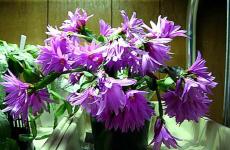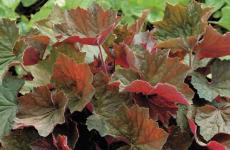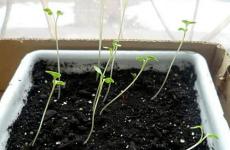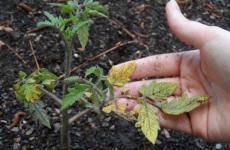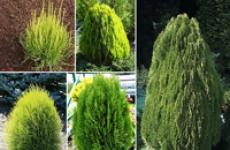Herbal treatment title. What is the name of herbal treatment
The use of plants for the treatment of various diseases is called phytotherapy, in the Russian version - herbalism, although, strictly speaking, not only herbs, but also trees, and flowers, and fruits, and berries can be medicinal.
At present, the culture of herbal treatment is largely forgotten, it has given way to pharmacology, but in recent years, an increasing number of patients and doctors are turning to this ancient art, appreciating the benefits of medicinal plants compared to traditional chemical preparations.
Benefits of herbal medicine
- A wider range of effects of medicinal plants due to the summation and potentiation of the action of various substances.
- Low allergenicity of medicinal plants.
- Low toxicity when used correctly.
- Soft complex effect on the body, the possibility of treating several pathologies at once.
- No side effects in most cases.
- Easy availability and ease of preparation.
- The possibility of long-term use of medicinal plants.
- General healing effect.
Along with the advantages of herbal treatment, there are also disadvantages that limit the range of their application.
Disadvantages of herbal medicine
- Slow therapeutic effect.
- Lack of real control over the action of medicinal plants.
- Lack of knowledge of the mechanisms of action of medicinal plants.
- Difficult to predict effect.
Medicinal herbs: preparation methods
No single substance is isolated from medicinal herbs. A therapeutic substance (powder, tincture, etc.) is a whole complex of various substances that have a beneficial effect on the entire body, and not just on the underlying disease.
In some cases, a mixture of herbs is used to make a medicinal collection - in this case, either the range of therapeutic effects is expanded, or one substance enhances the effect of another.
The composition of the plant and the content of active substances depends on the taxonomic affiliation of the plant, the place of growth, the composition of the soil and water, the time of collection, the method of preparation and storage. Collect flowers, leaves, bark, roots, buds and fruits. After harvesting, the plant is dried and, if necessary, crushed.
The main methods of preparation of medicinal plants
Decoction. Prepared from solid parts of medicinal plants - bark, roots. Dry collection is poured with water and boiled in a water bath, then insisted and filtered. The broth is suitable for use during the day.
Dried parts of plants for brewing with boiling water: for example, linden blossom, currant leaves, wild rose.
Infusion. Prepared from crushed flowers, leaves. The collection of herbs is poured with boiling water and tightly closed with a lid, then filtered.
Tincture. Prepared with alcohol. Dry crushed raw materials are poured with alcohol and infused at room temperature, then filtered and stored in a dark place. Tinctures are consumed drop by drop or diluted with water.
Powder. The dried raw material is ground into a fine powder. Sometimes raw materials are crushed with a meat grinder.
Juice. The collected medicinal herbs are pressed to produce juice. Store in a dark cool place.
Oil extract. The drug collection is poured with oil and infused in a water bath or in a warm place.
Ointment. Prepared from dried raw materials by mixing or heating with animal fat or vegetable oils. Applied externally.
Essential oils. Highly concentrated extracts from medicinal herbs with a very strong effect.
Healing herbs
The most common and frequently used medicinal herbs in Russia are valerian, green tea, mint, lemon balm, chamomile, calendula, aloe, celandine, plantain, etc.
We are accustomed to using many of the medicinal herbs in everyday life, while others are perceived as eccentricities: for example, nettle and dandelion soup.
Nevertheless, scientists have proven that medicinal herbs are leaders in the content of vitamins and other nutrients and substances useful for the human body, and are currently ahead of vegetables and fruits, which over time only lose their nutrients. This means that the inclusion of medicinal herbs in the diet and in general in the daily life of a person is becoming more and more justified.
Medicinal herbs on the table
Each plant from a certain point of view can be called medicinal. All of them contain a large amount of vitamins and other useful substances: tannins, flavonoids, essential oils, saponins, glycosides, alkaloids. Therefore, it is useful to include medicinal herbs in the diet, not even for the purpose of treatment, but in order to saturate the body with nutrients.
Medicinal plants that should always have an open path to the table include: dill and parsley, mint and lemon balm, green tea and lime blossom, sea buckthorn and other berries, chamomile, cilantro, viburnum, sage, ginger, cumin, chicory, etc. d. You can include nettle and dandelion, eleutherococcus, ginseng in the diet, sprouts are very useful.
herbal medicine
In some countries and regions, herbal medicine is the main and only available treatment for the vast majority of patients. This includes many parts of India and China, Tibet, regions of South America.
In the season of colds, medicinal herbs become an integral element of therapy. At the initial stages of the disease and with a mild course of the disease, many patients use only traditional methods of treatment, namely herbal medicine.
While traditional healers without a medical background claim that herbal medicines can cure everything from the common cold to cancer, doctors warn patients against relying too much on herbal medicine and recommend that traditional medicine be turned to in serious situations.
However, this does not negate the fact that at the initial stages of the disease, with a mild course, medicinal herbs can indeed be an effective means of therapy.

This includes such common pathologies as gastritis and other diseases of the gastrointestinal tract, hypertension and other cardiovascular pathologies, emotional disorders, bronchopulmonary diseases, diseases of the nervous system and joints, diseases of the skin and mucous membranes, inflammatory diseases of the nasopharynx and oral cavity.
In addition, herbal medicine can be a good support for traditional treatment in many serious cases - both as an etiological (affecting the cause of the disease), and as a symptomatic (weakening the manifestations of the disease), and as a restorative and restorative treatment. This applies to serious infectious, oncological diseases, injuries, mental illness, kidney and urinary tract diseases, hormonal disorders, metabolic pathologies, etc.
Medicinal plants for weight loss
With a large supply of nutrients and vitamins, herbs for weight loss can help in the process of normalizing weight, as well as for correcting metabolic disorders accompanied by weight gain (diabetes, for example).
Several groups of medicinal herbs are used for weight loss.
- Medicinal herbs to reduce appetite: flaxseed, licorice root, green tea.
- Medicinal herbs that remove excess water from the body, and with it toxic substances: lingonberry leaves, burdock, horsetail.
- Medicinal herbs that speed up metabolism: eleutherococcus, lemongrass, ginger, ginseng, rosemary, turmeric.
- Medicinal herbs that promote the excretion of bile and normalize the functioning of the liver and gallbladder: sea buckthorn, corn columns, barberry, immortelle.
- Medicinal herbs that lower cholesterol and blood sugar levels: alfalfa, birch buds, strawberry root, dandelion.
- Medicinal herbs with a laxative effect: dill, anise, cumin, etc.
Herbs for weight loss not only have a direct impact on certain functions, but also saturate the body with vitamins and other nutrients, which favorably affects the condition of the skin and hair, strengthens the immune system, and maintains overall tone.
Therefore, herbs for weight loss are useful to include in any diet. As a rule, a collection is made from herbs for weight loss, which is taken before meals. The course of taking herbal preparations for weight loss is 1.5-2 months, after which a break is made.
However, using medicinal herbs for weight loss on their own is not recommended. It is important to understand that medicinal plants contain potent substances, and their treatment should be prescribed by a doctor, taking into account contraindications and the individual state of the body.
Phytotherapists - who are they?
In Russia, a phytotherapist diploma can only be obtained by people with a medical education who have completed a refresher course in the specialty "Phytotherapy". Such courses are available at the Peoples' Friendship University of Russia, Altai State Medical University, etc.
After completing the course, you can get a certificate of state registration of a healer. This certificate gives the right to conduct medical activities using herbal medicine.
The slow impact and naturalness of the raw materials encourage many to use medicinal herbs on their own, but doctors strongly recommend not to do this. We know too little about the properties of medicinal plants to use them uncontrollably. Science is only groping for an approach to treatment with the help of natural ingredients.
Today, a phytotherapist (or herbalist) is a specialist with a higher medical education and additional knowledge in the field of herbal medicine. This combination can at least guarantee the absence of harm from the use of medicinal plants. In addition, at the right time, such a doctor will still be able to refer the patient to the mainstream of traditional medicine for treatment.
Unfortunately, at present there is a certain gap between traditional medicine and herbal medicine. The patient rarely (if not never) can get advice on both issues from one specialist. As a result, the patient is deprived of the benefits and opportunities of phytotherapy, which negatively affects the treatment rates. All this leads to the need for further study of the mechanisms of action of medicinal herbs, the search for evidence of their effectiveness and the development of therapy regimens taking into account herbal treatment.
Author Masha asked a question in Doctors, Clinics, Insurance
What are the names of doctors who treat with herbs? and got the best answer
Answer from MargaritaFilatova[guru]
Phytotherapists!
Almost all over the world, phytotherapy has long been part of official medicine, but in the Russian Federation, phytotherapy received the official status of traditional medical activity not so long ago - in 2000. Until that moment, this method of treatment was classified as non-traditional methods and there was no official approval from the state, despite the fact that medicinal plants, which are the basis of herbal medicine, were part of many medicines. If we consider the origin of the method of herbal treatment, then its origins will be lost in ancient times, because the healing power of nature has long been known to man. Once upon a time, a person had no choice - he was treated with what he found around him - food and herbs.
Today, phytotherapy is defined as a method of treating various diseases with varying degrees of severity with medicinal products of plant origin. However, in order for herbal medicine to receive official state approval, it was instructed to conduct a whole range of research and information-analytical activities in order to test empirical experience and create official methodological recommendations. The result of the joint work of leading scientists and practitioners was the conclusion that phytotherapy does not at all belong to the category of unfounded sciences, but still has a clear scientific platform.
Answer from Baby *[guru]
Homeopaths.
Answer from Јinsha[guru]
Phytotherapists.
Answer from Through[guru]
there are no such specialties and directions officially.
Answer from Andrey Enyutin[guru]
crooks.
Answer from Ludmila Kuzmina[guru]
Phytologists
Answer from Yoasha[guru]
Herbalist)
Answer from 3 answers[guru]
Hello! Here is a selection of topics with answers to your question: what are the names of doctors who treat with herbs?
About healers, herbalists, healers and healers
Quite often it happened to see various announcements like this: “How to find a good healer to remove the evil eye and damage, otherwise there is no health at all?” and similar ones. From the very posing of such questions, it is clear that people do not have a very good idea of who healers and herbalists are, and what exactly they do.
Since people tend to err even in simple things, then I think it’s worth devoting some time to thoroughly understanding the exact meaning of the words “Medicine”, “Herbalist” - and in their difference from many other words and professions or types of activity that denoted by other words. If we sort this out and begin to clearly distinguish who is who, and not confuse one with the other, then after that it will be easier for us to judge the subject of discussion.
So let's take a look at who's who:
– fortune tellers, their profession is to guess, not to heal;
– soothsayers, sorcerers, "magicians", "sorcerers", "voodoo" etc. - these are those who heal (or try to heal) with rituals, spells, spells, amulets, charms, talismans and other similar things. It seems that in this group the number of charlatans will be the largest;
– "clairvoyants", "telepaths", these are people who can see the hidden present or predict the future. But their area is not treatment. I think that there really are such, but there are very, very few of them - real ones;
– shamans, these are priests and keepers of knowledge and religious beliefs of various nationalities. Which, among other things, also have knowledge in their traditional medicine and can treat people in various ways. I think this can also be included magi;
– « psychics" and "bioenergetics", these are Russian remake words, denoting, in fact, what is called “healing Chinese qigong” or “treatment with outgoing Qi energy” in the Chinese cultural tradition. Real Chinese qigong masters really treat them. But I personally have big doubts about the effectiveness of our home-grown "bioenergetics" and "psychics";
– healers, by which “Filipino” healers are usually meant, these are those who “remove” the disease from the body with their hands or “do” operations with their hands. I personally do not really believe in this, although I do not fully exclude that this may actually be the case;
– chiropractor, it is treating by manual influence (with hands) on the patient's musculoskeletal system and spine;
– chiropractor, this is the one who, by manual methods, hands, sets the vertebrae;
– homeopathist, is a doctor who treats with very small doses of herbs or medicines;
– herbalist, is a conventional (traditional) medicine doctor interested in herbal medicine;
– healers, these are people who heal (or try to heal) with words (or a conspiracy), thoughts coming from them, touching or laying on hands. Among the charlatans, of which there are many among them, I think that there are also real healers there - and you can find out who is real and who is not, only by the results of their activities. The clergy can also be counted as healers, who can heal with prayers, words, conversation or the laying on of hands. I would also rank among the healers those notorious grandmothers who speak ailments with words, conspiracies, including prayers. By the word "Healer" I would generally understand a person whose treatment helps the patient - regardless of how he treats his patients.
Witch Doctors and Herbalists
Now let's try to figure out who they are healers and herbalists. These are healers who treat with herbs, decoctions of herbs. That is, it is an ancient folk herbal medicine. This is the medicine that for many generations and centuries people have been treated in Russia and in all other countries around the world. This, in fact, can include Chinese herbal medicine, and Tibetan medicine, and Indian Ayurveda, as well as all other ancient and modern herbal medicines.
Previously, before the advent of the era of chemistry, that is, somewhere until about the second half of the nineteenth century, all doctors were what is now called "healers" and "herbalists". And they treated mainly with herbs or decoctions of herbs. The difference between a herbalist and a healer, I think, is that the “herbalists” were city doctors, and the “healers” were rural ones. Therefore, compared to the medicine man, the herbalist is more educated and more experienced in the field of herbal medicine.
That is, healers and herbalists are the same as healers, and this is the same thing that was understood earlier - before the emergence of the so-called "modern medicine" - under the word "doctor". All famous doctors of the Ancient World, the Middle Ages, the Renaissance, the Enlightenment and the New Age fall under this definition, and they were all in the modern sense essentially healers, herbalists and healers. These included Hippocrates, Empedocles, Galen, Avicenna, Paracelsus, Rabelais, Linnaeus and all the other doctors of those times.
Now, having sorted out the groups of different people who are engaged in maybe close, but still different things, and returning to our announcement “How to find a good healer to remove the evil eye and damage, otherwise there is no health at all”, we can say that you definitely don’t need to contact healers about damage and the evil eye. But as for herbal treatment, contact them - this is just the right place.
Also, for many believers, there is a very important question - how does religion look at herbalism, and will there be a sin in the treatment of their ailments among healers and herbalists? Especially for these people, we will see what the highest authority, the Holy Scripture, says about herbal medicine, herbalists and healers.
Medicinal herbs
Herbal medicine requires knowledge and experience. Herbal medicines have many advantages over pharmaceuticals made from chemicals. Plants also contain a large number of chemical elements, but they are easily absorbed by the human body, herbal treatment does not cause allergic reactions.
The benefits of herbal medicine
Plants used for treatment are rich in various vitamins, minerals, organic acids, they contain essential oils, antioxidants, hormones, all those substances that play an important role in maintaining health. Since ancient times, people began to use medicinal herbs to get rid of ailments.
With the help of a well-composed herbal collection, you can cover the full range of diseases accumulated by a person and help fight, taking into account the individual characteristics of each organism. The composition, quantity and dosage of tinctures, infusions and decoctions are directly dependent on the age of the patient, his race, sex, weight, and a bouquet of diseases. Close attention is paid to such parameters as blood pressure, blood coagulability, acidity, etc.
An important aspect in the treatment of medicinal herbs is the correct preparation of raw materials, which are collected at certain periods, dried and stored at specified temperatures and humidity. The required formulation and dosage must also be observed.
Basic rules for herbal treatment
In order for the treatment of medicinal herbs to have a good effect, it is necessary to follow a number of rules:
- use only glass or enameled dishes;
- straining infusions and decoctions should be done only when hot;
- do not use old raw materials;
- drink only newly prepared drugs;
- during the treatment period, you should stop drinking alcohol, spices, fried and fatty foods.
Traditional medicine recipes and herbal treatment
- With vegetative-vascular dystonia and neurosis
For 1 cup of boiling water, take 1 tbsp. next collection: (20 g), hops (20 g), valerian root (30 g), lemon balm leaf (30 g). The remedy is infused for half an hour, filtered and taken one glass a day as a sedative.
- To improve blood circulation
2 tsp collection of 50 g of hawthorn flowers, 30 g of highlander and 20 g of horsetail are brewed with one glass of boiling water, filtered after 1.5-2 hours and drunk a little during one day.
Culture and interest in herbal medicine. Of course, it is possible to start your studies in the field of herbal studies without prior knowledge, but a basic knowledge of herbs and other botanical systems will lend a helping hand to your future. If you are still in school, be careful in your biology lessons. In addition, an interest in other fields of science and a love of the environment is a wise way to travel before embarking on such a career.
Complete a recognized herbalist training program. You can start a career in this field both formally and informally, depending on how you intend to pursue herbal medicine.
Choose your work location wisely. You might be tempted to live in a big city or the city where you got your herbal education, but the competition there seems to be too hot.
Try to build partnerships. You can work alone or with other herbalists or healers. The potential income will be higher if you work alone, but the costs are also high. Starting a private practice can cost you anywhere from $5,000 to $10,000, and it can take up to three years before you start making a profit; also take into account that in a joint partnership, you get support from your colleagues, increase the number of referrals (if you work in a clinic), and general overheads, medical insurance, professional liability insurance and other expenses.
Take precautions. What happens if a patient sues you? Consider professional liability insurance. Also make sure you have general liability insurance, which covers situations in which you could slip and fall. If you work from home, consider the regulations and zoning of your area.
Research in related fields is the knowledge that sets the herbal professional apart.
- Fundamentals of plant theory; first use of plants for medicinal purposes, anthropological history. There is evidence from 60,000 years ago that Neanderthals used medicinal plants. More recent, 5,000-year-old written records confirm the continued use of plants such as cumin as a natural medicine. Traditional Chinese herbal medicine, practiced since the time of the dynasties, is still relevant today.
- Specific aids for various conditions; herbal therapy; the use of food and medicinal herbs for health and healing. There are many scientific communities that help to understand and master the concept of classes and families. The typical herbalist will prescribe specific herbs, tinctures, liquid extracts, capsules, or teas and may suggest dietary changes, exercise, and other treatments to aid the healing process. The possibility of body therapy with herbs can also be considered separately. For example, the ingredient caffeine, which gives us a little energy and is found in cola and other soft drinks, belongs to the herbal alkaloids. On the other hand, various types of alkaloids such as datura can lead to severe intoxication and ultimately death. Remember - a career in herbal therapy requires an understanding of the brief biological origins of herbs.
- Providing the main properties of herbs, including dietary and energy; teaching the basics of diseases and diagnosis within the medical system; training in the use of herbal preparation, therapy and formulas. Herbal Therapy is the science of how to use herbs for yourself and for the good of all, and this should become a life credo. Herbs are a natural way of treating disease, and most of those taken for treatment will go through a harmless system if the body needs it. We can't say the same for drugs that build up in the liver and other organs, and eventually our bodies stop responding to certain drugs that might have been life-saving if only used for emergency treatment. Using the effective properties of medicinal herbs is an important approach in medicine. Signs that play a major role in determining the characteristics of herbs can be color, root structure, cracks in the bark of some trees and vines, which are considered a good way to normalize blood circulation. Sometimes, only one name can indicate the use of herbs, for example, heartwood, eyebright, root cancer of the throat and root. The characteristics of herbs are the main source of their spiritual properties and the definition of their medical purpose.


